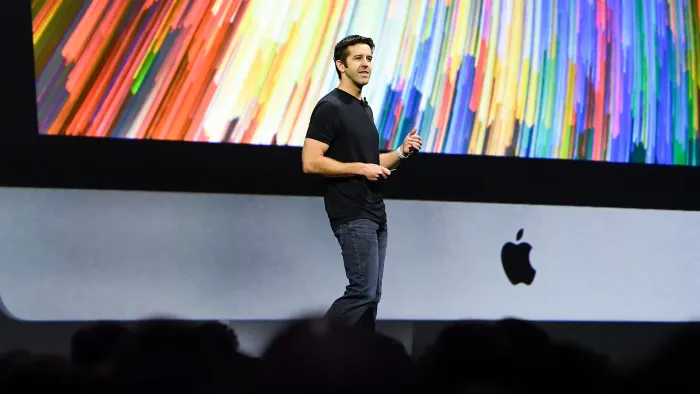
John Ternus, senior vice president of hardware engineering at Apple
Image: Getty Images
Tim Cook has led Apple for the past 14 years. In that time, the company’s market cap has jumped from $348 billion to $4 trillion. While his predecessor, Steve Jobs, might have been a leader in the field of innovation, few CEOs have shown the business acumen of Cook. But according to a report in the Financial Times, Cook’s run as CEO could be over as soon as next year.
The report has set off a guessing game as to who will take over the tech giant when Cook departs. (Apple did not respond to a request for comment on the FT story.) The name most commonly mentioned is John Ternus, Apple’s senior vice president of hardware engineering, though reportedly no final decisions have been made yet.
Ternus wasn’t always the first choice. Jeff Williams was once seen as Cook’s most likely successor, but he ended his operational responsibilities in July and plans to retire in the next six weeks. Craig Federighi, Apple’s senior vice president of software engineering, and Greg Joswiak, senior vice president of worldwide marketing, have also been mentioned as possible successors in the past.
However, both the Financial Times and Bloomberg’s Mark Gurman have said Ternus is the heir apparent. So who is the person who could inherit Apple as it approaches its latest crossroads—with product design more important than ever and AI coming to the forefront?
At just 50, Ternus is the youngest top executive at Apple, but he’s hardly a newcomer. He has been with the company for nearly 24 years, leading the hardware engineering division since 2013. That puts him in charge of the teams behind the iPhone, iPad, AirPods, Mac, and more.
Over the past five years, he has become a more visible presence at Apple events, unveiling the iPhone Air in early 2025 and showing off Apple’s first silicon chip, the M1, in 2000. His engineering background could assuage critics who have complained Apple has become a less revolutionary company under Cook’s leadership (despite the hundreds of products released during his tenure).
Ternus started his career in tech at Virtual Research Systems, working on VR headsets for four years before joining Apple in 2001, which let him work on several products that would prove to be iconic for the company. By 2013, he was overseeing Mac and iPad development and added the iPhone hardware to his list of supervised products in 2020.
He is said to be well-liked at the company and by Cook, helping to contribute to product road maps and future strategies for Apple.
Cook turned 65 this month, which has warmed up the talk of his eventual retirement, but he has previously downplayed questions about whether he plans to step down.
In January, Cook was a guest on the Table Manners podcast and said his retirement, whenever it should happen to occur, won’t meet “the traditional definition.” He added he likely has many years left at Apple, though with the caveat that he doesn’t want to be a CEO for the rest of his life.
“I don’t see being at home doing nothing and not [being] intellectually stimulated and thinking about how tomorrow can be better than today,” he said. “I think I’ll always be wired in that kind of way and want to work.”
ABOUT THE AUTHOR
Chris Morris is a contributing writer at Fast Company, covering business, technology, and entertainment.. Chris is a veteran journalist with more than 35 years of experience, more than half of which were spent with some of the Internet’s biggest sites, including CNNMoney.com, where he was director of content development, and Yahoo! Finance, where he was managing editor.
FAST COMPANY
